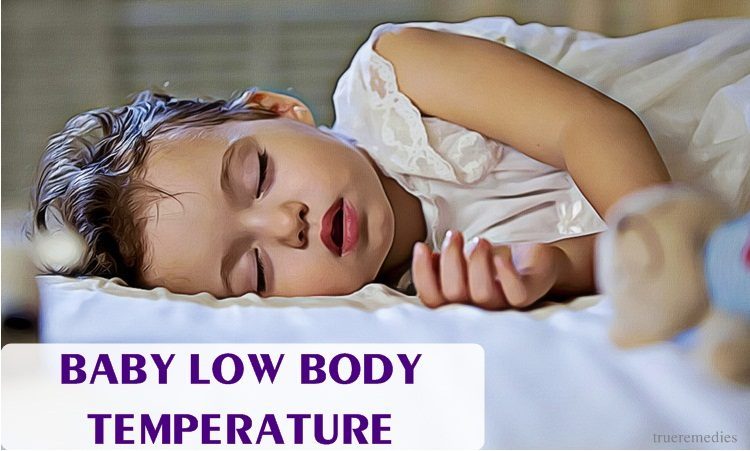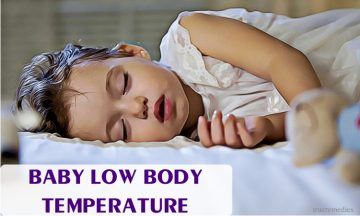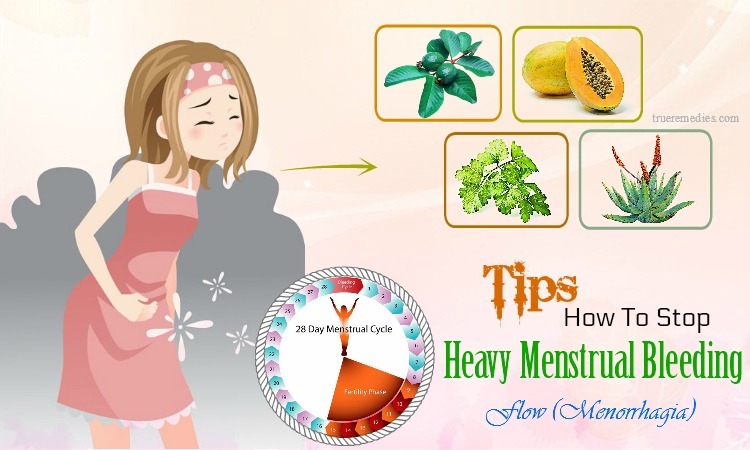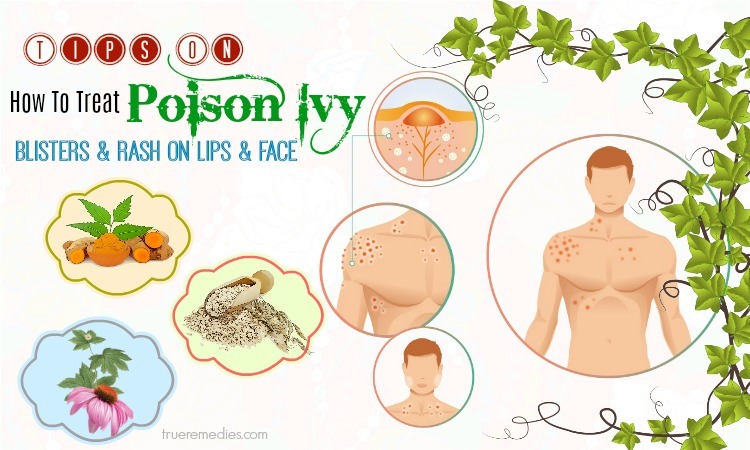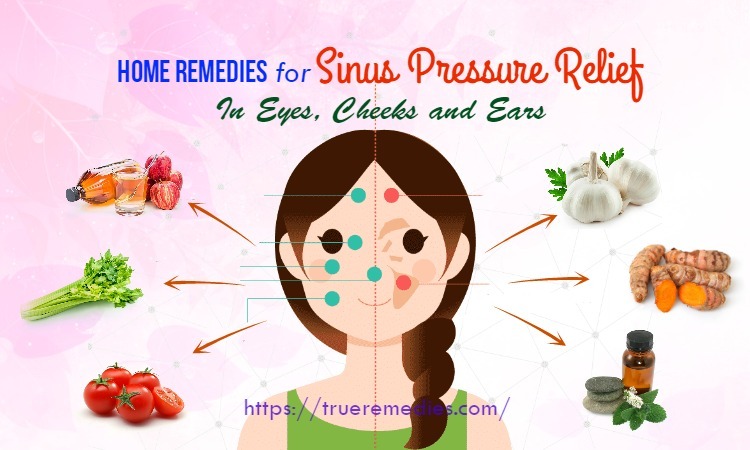Table Of Contents
- I. Different Types of Baby Low Body Temperature
- II. How To Know If Your Baby Has A Low Body Temperature
- III. Is A Low Body Temperature In Babies Dangerous
- IV. What Causes Baby Low Body Temperature
- V. What To Do If Your Baby Had A Low Body Temperature
- VI. When To Visit A Doctor
- VII. Useful Ways For Prevention
All parents want to keep the baby warm as an instinctual act of love in parenting. However, in spite of our intentions and efforts, sometimes the body temperature of newborns or infants drops suddenly or gradually below normal. Unfortunately, not many people are aware of this problem until it puts their lovely child at dangerous risks. In this article, Trueremedies.com will give you the basic information, including symptoms, causes, and effective ways for dealing with baby body low temperature and sweating.
- Top 17 proven home treatments for diaper rash in babies
- Top 28 proven solutions for typhoid fever and headache (This article was medically reviewed/fact checked by Millie Lytle ND, MPH)
- Top 10 warning signs of postpartum depression
Baby Low Body Temperature And pAnd What You Need To Know
I. Different Types Of Baby Low Body Temperature
Not only adults but also babies have slight fluctuation in temperature through a day depending on the time, activities, and how you measure the body heat for your babies. But in general, if taken with an oral thermometer, the temperature of a child should be between 97.7°F (36.5°C) and 99.5°F (37.5°C)[1].
On the other hand, when measured with a rectal thermometer, the healthy baby’s temperature needs to be around 99.6°F (37.6°C).
However, if you notice the baby’s body temperature below 97.7°F (36.5°C), your baby is suffering from low body temperature also called Hypothermia.
Based on the level of drop in body temperature in babies, the World Health Organization (WHO) showed three different types of baby low body temperature or hypothermia[2].
There are only slight differences between these ranges, but they are used as a guideline for addressing the level of baby low body temperature.
TrueRemedies Partner Solutions

Need a Help from the Leading Expert Online, Available 24/7?
They’re all here and ready to answer your questions online or by phone. Keep asking questions until you get the answer you need.
- Mild Hypothermia: the body temperature of your kid drops slightly, and it ranges between 36.0 C to 36.4 degrees C (96.8 F – 97.5 F)
- Moderate Hypothermia: the body temperature of your kid is between 32.0 C to 35.9 degrees C (89.6 F to 96.6 F)
- Severe Hypothermia: the body temperature drops significantly below 32 degrees
II. How To Know If Your Baby Has A Low Body Temperature
To know whether your baby is suffering from Hypothermia or not, you should measure their body temperature. The best way is to take an oral temperature.
However, if your newborns are small, this method isn’t accurate because your babies are not able to hold the thermometer under their tongue. So, measuring the baby’s body temperature with a rectal thermometer is a good alternative.
Another method is taking body temperature under the kid’s arm (axillary) that is easier but less accurate than using a rectal temperature. If you choose this method, keep in mind that the axillary baby body temperature is at least one degree lower than rectal one.
Also, you can look at your baby’s symptoms that vary and are based on hypothermia types. Take a peek at this table.
| Types Of Baby Low Body Temperature | Symptoms |
| Mild Hypothermia | Poor feeding, reddish or discoloured skin, cold to touch, random weak cries, heart arrhythmias, low energy level, the baby is lethargic, episodes of the absence of breathing, feeling of extremities, hypoxia, shivering, dizziness, faster breathing, peripheral vasoconstriction |
| Moderate Hypothermia | Violent and uncontrollable shivering, shallow breathing, slurred speech, trouble moving around, difficulty in making sounds or babbling |
| Severe Hypothermia | Failure to thrive, weight loss, no weight gain, weak or irregular pulse, dilated pupils, no shivering, unconsciousness, abnormal ECG reading, faint pulse, heart rate below 60 per minute, a considerable decrease in baby’s activity |
III. Is A Low Body Temperature In Babies Dangerous
Because the surface area of babies is three times more than one of the adults, it is easier for them to lower their body heat.
When a low temperature occurs, your baby’s body works too hard to regulate the temperature. Because of that, your baby has to use more energy and oxygen[3], which affects bodily functions as a consequence.
Suffering from the baby low body temperature, your kids will be at increased risks of:
- Blood clotting disorders
- Respiratory problems
- Infections
- Death
Furthermore, a baby with a sudden drop in body temperature can not recover from any ailment quickly, compared with one with good health and ideal temperature.
So, the answer to the question of whether a low body temperature in babies is dangerous and life-threatening is yes. Therefore, parents must pay special attention to that issue by measuring body heat regularly and checking their body’s symptoms.
IV. What Causes Baby Low Body Temperature
1. Infections
The immune system of infants and newborns are not strong enough to fight against infections; therefore, they are at a higher risk than adults.
Some certain infections have been shown the link with the baby low body temperature such as:
- Meningitis: It is an inflammation of the membranes surrounding the spinal cord[4]. The symptoms of this infection vary from a kid to a kid. While some babies catch a fever, others may have a lower-than-normal body temperature.
- Sepsis: This bacterial infection of the blood is dangerous, causing a fever or a low body temperature instead[5].
Both sepsis and meningitis are life-threatening conditions; so they need immediate medical help and intervention.
Besides, other bacterial infections of the lungs, the fluid surrounding the brain, urinary system or spinal cord can also be highly potential causes
2. Cold Environment
Being born in a cold birth environment condition will increase the risk of dropping the baby’s body temperature[6].
Therefore, in the hospital, people use a lot of protocols to keep newborns warm, including:
- After delivery, dry the newborns immediately to remove cold and wet amniotic fluid
- Keep the newborns stay in bassinets set with radiant heat
- Place the blanket wraps and heated mattresses in bassinets
- Let babies have skin-on-skin contact with their parents
- Only when babies are more efficient with warmth, you give them the first bath. That should be taken at least 12 hours after delivery
If a baby isn’t born in a hospital, you still need to use similar methods to make your baby warm and comfortable. Do not forget to dry your baby, give skin-to-skin contact and wrap them in a warm blanket.
The surrounding living environment condition is also necessary to pay attention as the birth one. Staying in the room with air conditioning, dressing your baby too lightly or taking your baby go outside in chilly weather will drop your baby’s temperature. The babies often get cold more easily than adults. Therefore, it is crucial to keep your home cosy and warm enough for a baby to stay. Furthermore, give your baby one more layer than what you are wearing.
3. Premature And Low Birth Weight Babies
Babies who are born at 28 weeks or earlier are at a high risk of baby low body temperature. So are the ones who have less than 3.3 pounds (1.5 kilograms) at birth[7].
The reason is that they have a large surface-area-to-volume ratio, immature nervous system, lack of body fat, water loss[8]and inability to efficiently produce heat.
After delivery, if your baby has a low birth weight or is premature, he or she will be kept under a neonatal care unit for a couple of weeks until their body gains enough strength. For example, they are placed in special bassinets with heated mattresses and warming lights.
4. Deficiencies
What your babies at significantly impacts on their body temperature. For example, certain deficiencies such as low iodine, iron or other such nutrients make your baby’s body temperature drop. If not treated soon, it can lead to more severe health problems.
5. Hypoglycemia
Hypoglycemia condition occurs when the baby’s body is lack of blood sugar or glucose circulating. Because glucose can be transformed into energy by the body, hypoglycemic babies at birth or soon after are more likely to get a low body temperature[9].
Hypoglycemia is caused by birth defects, infection and mother’s health during her pregnancy.
6. Endocrine And Metabolic Diseases
An infant can experience the baby low body temperature and sweating if he has an inborn metabolic disease or abnormality that affects the body organs supporting body temperature regulation[10].
For example, something abnormal occurring in the endocrine organs like the thyroid, adrenal or pituitary glands can affect the metabolism and the body’s ability to produce heat. As a result, that leads to baby low body temperature.
Moreover, body temperature in an infant can be lowered because of the impaired utilization of sugars or insufficient blood sugar in the body tissues and organs.
7. Neurologic Conditions And Injuries
To understand the link between neurologic conditions and this problem[11], we need to look at how your brain area called the hypothalamus react with the body temperature changes. When the temperature is low, the hypothalamus gets the messages and relieves multiple responses to your body to increase the body heat.
Therefore, brain abnormalities and injuries such as bleeding in a newborn’s brain around the time of delivery will affect the temperature regulating functions of the baby’s body. The possible causes of a brain bleed could be premature birth or difficult birth that requires forceps or a vacuum for baby delivery.
Brain tumours that press or invade pituitary gland or hypothalamus also increase the risk of temperature-regulating impairment in a baby. So do traumatic brain injuries or conditions that affect the brain areas aiding in body temperature regulation.
V. What To Do If Your Baby Had A Low Body Temperature
Here are the useful ways and excellent solutions for dealing with baby low body temperature and sweating:
- Remove any cold and wet clothes when your baby is at home
- Check baby’s temperature with a digital thermometer
- Set the room’s temperature at 25 degrees or more
- If your baby ages more than six months, give them a little warm drink
- Use chemical heating pads or hot packs on the neck, chest, back and other body areas of babies
- If your baby is less than 4 to 5 months of age, swaddle your baby
- Give babies skin-to-skin contact by holding them on mother’s chest
- Visit a doctor
VI. When To Visit A Doctor
If not addressed and solved soon, low body temperature will harm your baby. Therefore, if your baby’s body temperature decreases below 32 degrees, you should look for immediate medical attention because it can be a sign of severe Hypothermia.
Furthermore, if your baby with normal temperature experiences a sudden drop in their heat, it is essential to take them to a doctor immediately.
No matter whether your baby has a drop in their body temperature at night or any time during the day, medical help is needed. Measuring rectal temperature is best taken under medical supervision at hospitals.
VII. Useful Ways For Prevention
- Maintain the ideal room temperature in summer and winter months by using the home heater
- Limit baths because water evaporation on the skin will reduce body temperature. If you want, give babies sponge baths with lukewarm water. Avoid keeping your baby in the water too much time and dry them immediately after bathing. The bath is only recommended when the umbilical cord drops off.
- Monitor your baby’s body temperature regularly. The baby’s temperature should be measured before and after bathing or after getting exposed to an air-conditioned environment
- If your baby is outside in a cold climate, let your baby wear a hat that will reduce heat loss up to 19 per cent
- When you get pregnant, it is vital to have a healthy diet. The diet should follow experienced doctor’s recommendations and advice for weight gain
- Keep diabetes under control during pregnancy as diabetes is a common cause of hypoglycemia and abnormalities in a newborn
- Maintain a regular feeding schedule for your baby
- Ensure warm transportation
- Keep contact with health-care providers
Now you have known the information about the baby low body temperature and sweating. We hope that you follow these useful tips and guidelines for preventing and dealing with baby low body temperature and sweating and raise a healthy baby. Any questions can be left in the comment section, and we will answer them as soon as we can. Thank you for reading.

